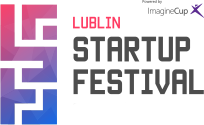Lessons from writing my own
Angular utility lib
Context is important

- /mateusz-chrzonstowski
- /_mat3e_
- /mat3e
- 🎓
- 🖥️ 💰 (2013)
- 👔 ⇒ 🏪
- 👪
Table of Contents
- Why did I start?
- DORF - Domain Object Reactive Forms
- Lessons - Angular
- Lessons - npm, webpack, other tools
- "Marketing" and results
More context
2014








2015

lvl++




2015/2016






The end of 2016






 2.0.0-rc.4
2.0.0-rc.4
 2.0.0-rc.5
2.0.0-rc.5

April 2017 2018




Table of Contents
- Why did I start?
- DORF - Domain Object Reactive Forms
- Lessons - Angular
- Lessons - npm, webpack, other tools
- "Marketing" and results
Ideas & motivation
-
Dynamic Forms
- Simplifying
- Reducing the boilerplate
- No direct connection with any CSS framework
- A high level of abstraction
-
Motivation
- Outer: To make dynamic forms easy for my colleague (involved in the side-project), without much professional experience
- Inner: To have an open-source project
Shock!
- An ordinary day at work vs. creativity
- Come up with the name of the project
- Come up with the slogan
- Description, how-to examples
- No pointless meetings :)
- Documentation?
- API
- License
- Changelog
The name (1/2)
The name (2/2)

Open Source vs. Agile
Andy Oram,
Getting Started with InnerSource (O’Reilly)
- The latter development methods were explicitly designed for teams working in a single office, communicating face-to-face
- Open source developers have turned quality control into a science
- Another tenet of open source development (...) is full documentation
- Agile? "working software over documentation"
- English has become the lingua franca practiced by all programmers
- Most open source projects involve end users in relatively old-fashioned ways, such as through alpha and beta releases
Building a lib? SOLID!
- SRP = "do one thing and do it well"
- OCP (Open/Closed Principle) = open for extension (configuration), closed for
modification
class StarRatingDefinition extends DorfFieldDefinition<number> { /*...*/ } class StarRatingMetadata extends DorfFieldMetadata<number, StarRatingDefinition> { /*...*/ } class StarRatingComponent extends AbstractDorfFieldComponent<number, StarRatingMetadata> { /*...*/ } - LSP (Liskov Substitution) = easy to switch from a class to its subclass
- DORF - easy to switch between CSS frameworks :)
- ISP (Interface Segregation)
- DORF field = definition, metadata, component...
- DIP (Dependency Inversion) = pluggability, loose coupling

Table of Contents
- Why did I start?
- DORF - Domain Object Reactive Forms
- Lessons - Angular
- Lessons - npm, webpack, other tools
- "Marketing" and results
A game: 3 associations
@



Decorators
- Decorators are just specific functions
- Well... what else in JS?
-
// @DorfForm()export function DorfForm(options?: IDorfFormOptions) { return function <D extends Function>(targetConstructor: D) { Object .defineProperties(targetConstructor.prototype, { /* props */ }); } } -
import { Input } from '@angular/core';export function DorfObjectInput() { return function (targetProto: any, propName: string) { Input()(targetProto, propName); targetProto.dorfObjectInForm = propName; }; } - Angular used to have
@Viewand@Component
Components
- Focus on building blocks
- Abstract component classes, with decorators?
- Yes, we can!
-
// @Component on the subclass export abstract class AbstractDorfFieldComponent<T, M extends DorfFieldMetadata<T, IDorfFieldDefinition<T>>> { @Input() metadata: M; /* ... */ }
TypeScript
- API (understood as fields and methods)
-
export type InputType = 'color' | 'date' | 'datetime' | 'email' | /* ... */; export interface IDorfInputDefinition<T> extends IDorfFieldDefinition<T> { type: InputType; } -
setDomainObjValue: (val: DomObj[keyof DomObj]) => { obj[propertyName] = val; } - AoT compilation
// order is defined as order?: number; get order(): number | undefined { return this.definition.order; } - TypeDoc - documentation generator
Table of Contents
- Why did I start?
- DORF - Domain Object Reactive Forms
- Lessons - Angular
- Lessons - npm, webpack, other tools
- "Marketing" and results
Webpack, karma
- Angular CLI hides a lot
- My idea:
dorf/configkarmatswebpack
-
package.json
"test": "karma start config/karma/conf.js" -
config/karma/conf.js
webpackConfig = require('../webpack/tests')
GitHub
- CI?
- Travis!
- Signing in with GitHub
- Adding a predefined build script
- Badge? Shields.io + markdown
- A webpage? E.g. master branch + docs folder
- README
- Badges at the top
- A quick win/a short example
- Examples, examples, examples (the online ones)
- Links to the documentation, articles
Node, npm
- README - different display than on GitHub
- .npmignore (by default equal to .gitignore)
- dist and .d.ts files shouldn't be ignored
- .ts files should be
- Many downloads right after publishing a new version
- Frequent updates = better position in search results
- Semantic versioning (Major.Minor.Patch)
- Backward compatibility (e.g. DorfModule, DorfCoreModule)
Table of Contents
- Why did I start?
- DORF - Domain Object Reactive Forms
- Lessons - Angular
- Lessons - npm, webpack, other tools
- "Marketing" and results
Promotion
- Twitter, proper hashtags (max. 2 per post)
- Medium - articles demonstrating a library
- Pluralsight - comments under the video about Reactive Forms in Angular
- StackOverflow - answering under Angular reactive/model-driven/dynamic forms questions
Getting a user/user needs
| Prio | What | How |
|---|---|---|
| 1 | Visibility at npmjs.com | Frequent updates (maintenance) |
| 2 | Nice README | Quick win + online examples |
| 3 | Documentation | Existing and visible just in case |
| 4 | Downloadable examples | Inside the repo |
| 5 | Clean source code | The less important part, but e.g. the documentation is a consequence of the code |
Results
- 7 GitHub stars (my first stars ever)
- +1000 downloads in a single day (29.08.2017)
- 300-400 downloads a month (before Angular 5)
- +100 downloads a month currently
- Huge knowledge/awareness growth
- The authors of a library/framework are the software developers, not superheroes
- New approach, different priorities
- Great understanding of the framework (especially of its narrow part)
Thank you

- Open source takes your skills to the next level
- Even a simple contributing (e.g. updating the documentation)
- GitHub, Twitter, Medium, StackOverflow
- Even a simple upvoting makes you an elite


 Test
Test